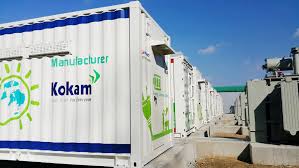A total of 1.4 GW of projects were put forward under the 200 MW tender, with energy storage projects taking positive steps forward, says Renewable Energy Agency.

The U.K.’s National Grid has published the winners of its inaugural Enhanced Frequency Response (EFR) services auction, revealing the growing ability of the country’s new and low-carbon flexible technologies, and storage systems in particular, to help “keep the lights on”.
The Renewable Energy Association (REA) welcomed the results of the auction, saying that it demonstrates to the world that storage systems in the U.K. are ready to deliver.
Some 200 MW were put to tender by the National Grid in the EFR auction, but in all a total of 1.4 GW of viable projects were pre-accredited for the auction. According to the National Grid, those awarded projects will deliver reduced costs of around £200 million ($255 million), and include projects from RES, Low Carbon and E.ON.
The winning projects are all intended to provide the U.K. grid with capacity to help balance the national electricity system at times when it is most under stress, such as dark winter evenings. According to the REA, such technical capacity has traditionally been the preserve of fossil fuel generation, but more flexible, integrated renewable sources such as solar and wind – and backed by increasingly affordable storage – will help to decarbonizes the grid in line with the U.K.’s legally binding carbon targets.
Although the EFR auction is technology-neutral, battery storage providers are particularly well-placed to provide the technological service required in the timeframe (frequency regulation services within 0.4 to 1 second for a minimum of 15 minutes); hence, storage providers won the majority of the capacity.
“The conclusion of the EFR auction shows that storage is now ready to deliver, and with the right framework can provide vital services to U.K. Plc,” said REA’s head of policy and external affairs, James Court. “The National Grid deserves credit for kickstarting this market, and the government must now follow through with its pledge to remove barriers to the industry.”
Court added that storage was identified in 2012 as one of eight great industries in which the U.K. could become a world leader. “The industry is starting to deliver on this promise,” he said. “With the right support in place we can go even further.”
What’s more, the results of the auction gave a timely reminder of the viability of the range of cheaper, safer and cleaner energy generation available to the government as alternatives to the much-derided Hinkley C nuclear plant.
Source: PV Magazine. Reproduced with permission.










